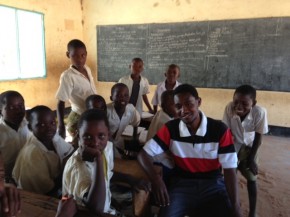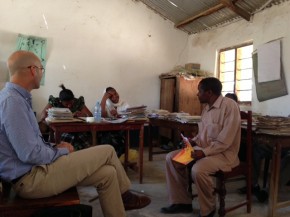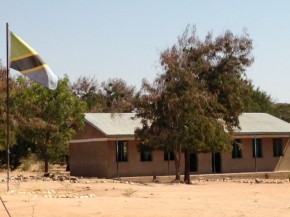
"You should get out more!” my team leader has been nagging me for months, sitting in our office block in Dar es Salaam. Getting to see, and hopefully understanding more, about the real situation in rural Tanzania is essential. A reality check to inform our decisions on DFID’s programme can be vital to support the provision of better education, health and water services.
An opportunity arose as our major new education programme EQUIP-T has just started to mobilise and I was able to join a team in the central region of Dodoma that was engaging with regional and district council education officials. We travelled around 60km from Dodoma to Bahi District and turning off the main road entered hot, dry scrubby bush, dotted with drought resistant Neem trees and Baobabs that reminded me of similar areas I used to visit in Northern Nigeria. I asked where we were going; "To visit an average school!" was the response.

We met the head teacher and two senior teachers of Ibihwa primary school in the rundown office building during the lunch break and were treated to a warm welcome and lively debate on the challenges they faced. Parents were often disinterested in getting children to attend, many enrolled late at the age of 9 or 10 years and truancy and drop-out in upper grades was high. Classes to re-enrol teenagers were abandoned after 3 months, when the students failed to reappear after a short break. Last year only 47% of the students in the top grade of primary passed the leaving examinations, but this is still a fair way above the national average!
The school had recently received a number of Maths textbooks from a national distribution campaign. Choice of textbooks and ability to get them in a timely manner is a common problem with centralised book schemes. DFID has supported a web, SMS and phone based system to ‘crowdsource’ monitoring of this distribution campaign, which is just going live as I write.

Three million shillings (about US$2,000) from government (partially donor financed from budget support) – for school operations and support costs had also been received and was a major increase from previous years. This has made it worthwhile for the school to plan worthwhile initiatives, additional afternoon reading lessons for students at risk of falling behind sounded like an excellent idea. Ibihwa School already had some newly constructed classrooms, latrines, water system and electrical hook-up thanks to Africare NGO. Inside the rooms were barren and students sat around disinterestedly without textbooks, copying text from the blackboard. Students I met in Grade 4 (around 11-12 years old) were able to read slowly in KiSwahili which was promising, but it was evident that improvements were both possible and needed. Making the classes interesting and active places of learning will be essential, as will EQUIP-T support to reforms in the system of teacher deployment, motivation and training.

Overall Ibihwa Primary was probably a fair bit above average, benefiting from its location near a road and recent infrastructure support. Raising standards and service at remoter schools, well off the beaten track will be a much more difficult, but essential challenge for the officials of Dodoma region and the EQUIP-T programme team.

Recent Comments